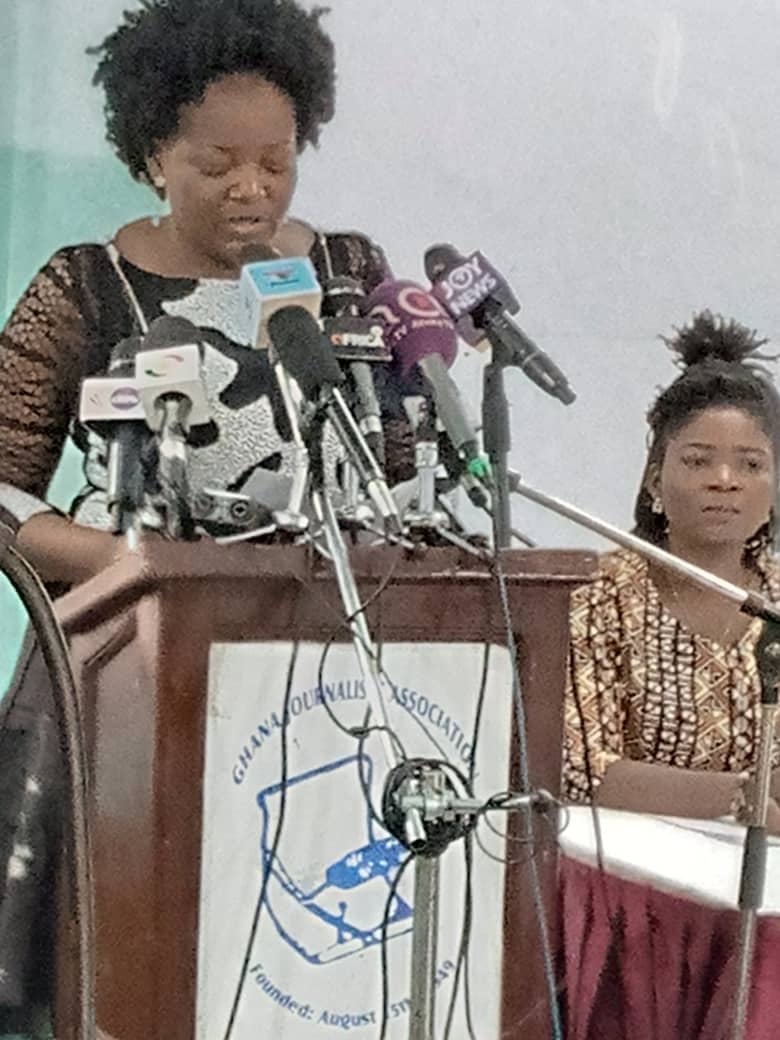A group calling itself Electronic Community of Practice and Learning (ECoPL) has officially out doored a campaign to demand from government, an official notice on the status of implementation of the recommendations of the Constitution Review Commission (CRC).
The ECoPL is a coalition of 44 highly recognized civil society organization, media houses, activists, independent constitutional bodies and political parties working together to positively mobilize and influence critical stakeholders within the government landscape.
The aim of the group is to harness and share lessons on emerging issues including but not limited to general electoral management and reforms in Ghana.
These issues of which are over 90% were accepted by government in a White Paper issued in June 2012 as well as the roadmap for the implementation of the recommendations.
Mrs. Eyram Bashan, the Convener of the coalition, speaking at the press conference in Accra noted that, the 1992 Constitution embodies many features that seek to foster accountable, open, transparent and participatory democratic governance including provisions designed to ensure the independence of the judiciary and an impressive bill of rights, the High Court as the Human Rights Court.
“ECoPL has four priority areas, namely; Constitutional reforms, peace and security, election credibility and inclusivity, and ICT tools in elections management” she said.
noting that, there are however, some deficits, flaws in Constitutional design and practice that have led to too much power concentrated in the presidency, thus undermining systems of checks and balances.
Mrs. Bashan also indicated that, the ECoPL would also engage key stakeholders involved with the CRC processes to update members of the ECoPL on the status of the implementation.
The ECoPL have also gained some considerable traction on social media and have caught the attention of critical stakeholders.
“Building on the work of the ECoPL, it is critical that civil society organizations and other relevant stakeholders identify spaces for civic activism to serve as a way of pulling ardent support from citizens to mount pressure on government to give the process the urgent attention it deserves”, she opined.
“Given the high partisan nature of governance in Ghana, the implementation of the constitutional review recommendations requires a strong, collective involvement/action of civil society actions that will sustain the objective of the exercise devoid of the usual politicking and in the interest of the state and citizenry”, she acknowledged.
The multi-stakeholders’ dialogue event will target key Civil Society Actors, Media, the Donor Community, the Leadership of Parliament, the Electoral Commission and key Government official, members of CRIC, and other key stakeholders involved in the constitutional review process.
Ms. Mabel Viviey, Communications and L earning Manager at Star Ghana Foundation indicated that the role of the Foundation is to facilitate the conversations and actions necessary.
Therefore to bring about these changes cannot be over-stated given its position in Ghana’s development landscape as an honest broker and given the resources at its disposal.
“Convening these conversations and facilitating follow-on actions fail directly with the programme’s 3Cs+L strategic approach” she said.
“The purpose of the National Multi-Stakeholder Dialogue is to review national interest in the constitutional review process: this will create opportunities to; surface key issues for STAR-Ghana and other stakeholder’s actions on taking forward the recommendations from the CRC, update key stakeholders on the status of implantation of recommendations accepted by Government among others”.
Story By: Delali Gavor








